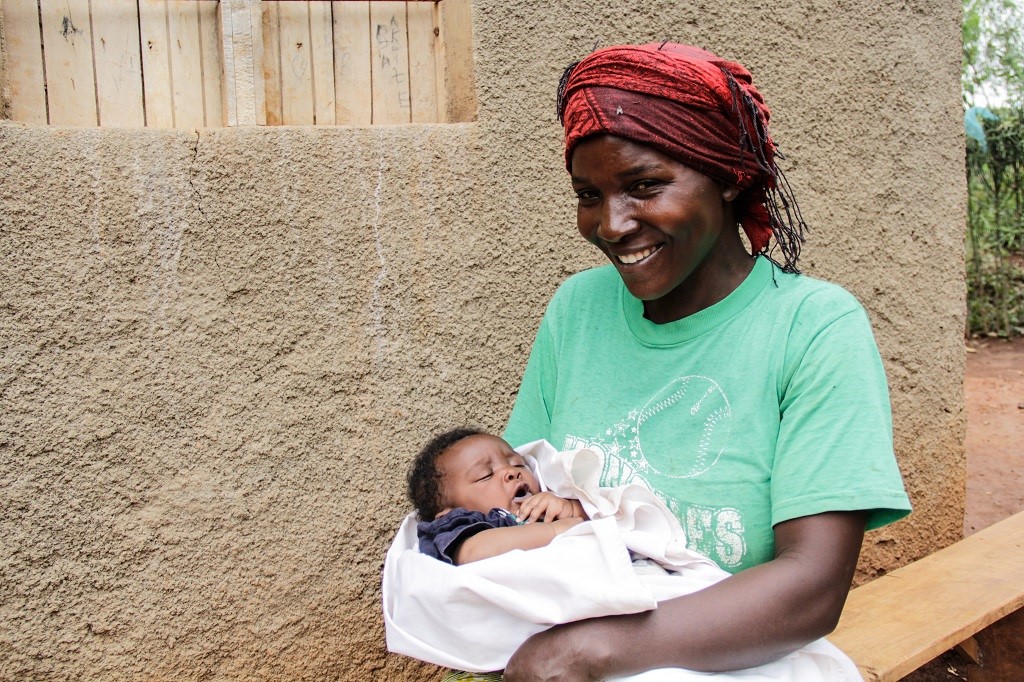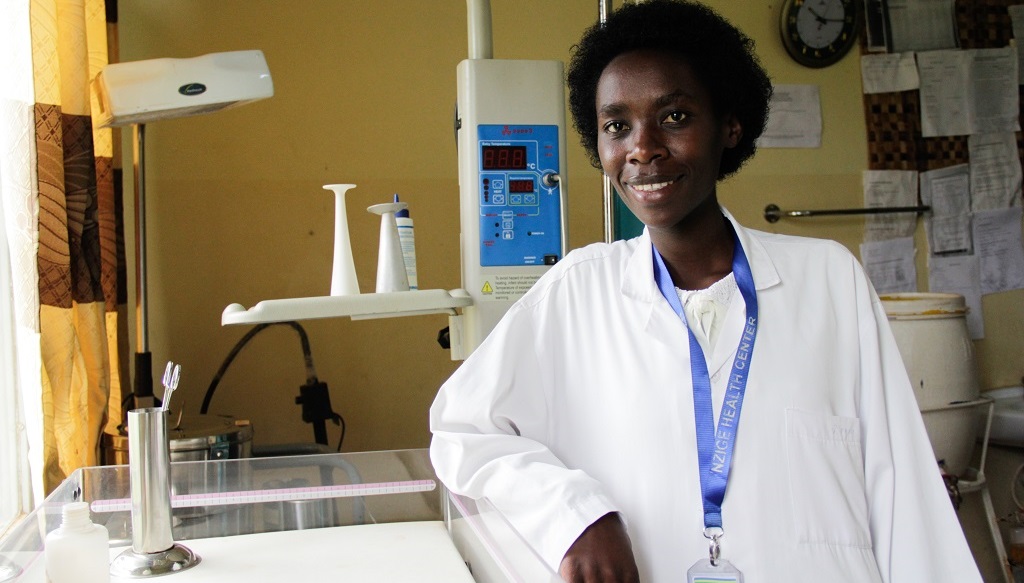This content was also featured on the Health Newborn Network website.
Alphonsine Mukandayisenga was full of excitement when she arrived to Nzige Health Center in Rwanda’s eastern district of Rwamagana. She had waited years for this day: the birth of her first baby.
After five hours of normal labor — and with the help of midwife Georgette Dusingizuhoraho — she gave birth to a baby girl.
“I had waited for three years, but I never got pregnant,” Mukandayisenga said. “When I heard the cry of the newborn, my depression and sorrow disappeared.”
Her intense joy turned to fear, however, when she began to bleed heavily soon after the birth. Fortunately, Dusingizuhoraho knew to act quickly. In MCSP’s basic emergency obstetric and newborn care (BEmONC) training, the midwife had learned to manage after-birth complications like bleeding.
Dusingizuhoraho examined the new mother, quickly determining a cervical tear as the source of the bleeding. At school, she had learned about such postpartum complications, but believed these cases were best handled by gynecologists. After her MCSP training, she knew differently – and began to confidently identify and manage these cases herself.
“I knew I was going to resolve the problem,” Dusingizuhoraho said of Mukandayisenga’s bleeding. “After seeing that the uterus was contracted, I felt so happy and confident, because it was easier for me to fix it.”
Soon after repair, Mukandayisenga’s bleeding stopped, and Dusingizuhoraho took her to the recovery room for further treatment and observation. After three days, mother and baby – both healthy – were discharged home.

In collaboration with the Rwandan Ministry of Health, MCSP has trained more than 1,300 nurses and midwives in 10 of the country’s districts to manage maternal and newborn complications during pregnancy and delivery. Moreover, the Program has trained and equipped 107 midwives – including Dusingizuhoraho – to mentor their peers.
“At school, I theoretically learned about afterbirth complications, but with MCSP training, I got to practice and I am confidently saving lives,” Dusingizuhoraho said. “I am very happy with the training – especially the mentorship program – because it has improved my self-confidence.”
This network of midwife mentors is extending the impact of MCSP training by passing their skills and confidence on to other health care workers. Midwives like Dusingizuhoraho spend at least one day a month working with their mentees to reinforce their BEmONC skills and knowledge.
Before the training, for instance, staff at Nzige Health Center transferred many patients with birth complications to the district hospital. Because of the long distance from the health center to the hospital, patients’ risk of dying from these preventable complications increased.
Since the training, health center staff have successfully managed 12 cases of postpartum hemorrhage – with no deaths. Dusingizuhoraho credits MCSP training and support for giving her the skills to successfully manage seven of these cases.
At MCSP, we believe that a woman’s chances of surviving childbirth — and her child’s health — should not depend on where they are born. In one year, there are more than 23,000 deliveries at health facilities in MCSP-supported districts. We’re using proven, cost-effective solutions to empower midwives and nurses to provide high-quality maternal and child care, and to save lives.
For a new mother like Mukandayisenga, this care means the world. “My baby is doing well,” she reported recently. “I want her to become a midwife like Georgette so that she can save lives, too.”

